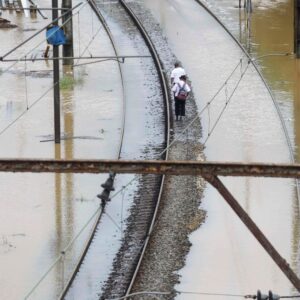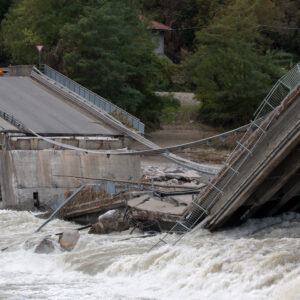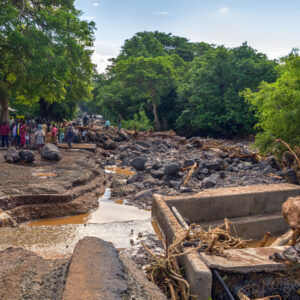Forty-one per cent of people globally sees climate change as a ‘very serious threat’ to their country, with 28 per cent being “somewhat concerned”. This compares to 13 per cent who say climate change is not a threat at all and nearly one in five people worldwide with no opinion or awareness of the issue.
Although may people are aware of the risk, levels of scepticism and indifference are particularly high in the world’s biggest producers of climate changing emissions.
Climate change is an issue where peoples’ feelings about risk differ according to demographic variations. Age and gender have a small, but significant, impact on risk ratings. Younger people were more likely to rank climate change as a very serious threat to people in their country over the next 20 years, than older people (42 per cent of 15-29 year olds; 38 per cent of over 65s). Men generally viewed climate change less seriously than women. While men and women were about as likely to believe climate change represents a very serious threat (40 per cent men; 42 per cent women), older men were more likely than older women to say that climate change is not a threat at all (17 per cent of men over 65; 12 per cent women).
Globally, the poll found that 22 per cent of people had experienced severe weather, and 53 per cent of these rate climate change as a very serious threat.
Where a person lives also had a significant impact on their response. Some neighbouring countries had very different perspectives on climate change, and the poll findings suggest that other factors, such as education and politicization of the debate about climate change, may also be factors. In South Africa 59 per cent per cent of people thought climate change was a very serious risk, whereas in neighbouring Lesotho it was 78 per cent, Zimbabwe 59 per cent, Namibia 65 per cent, and Mozambique 40 per cent.
In southern European countries, the proportion of people who think that climate change is a very serious threat is much higher than many of the northern countries in the region. Spain, Portugal and Greece are all above 80 per cent, Cyprus 77 per cent, Italy 67 per cent and Malta 60 per cent. France, Germany, Belgium, Netherlands, Denmark, Sweden, Norway and Finland all had much lower percentages of people who think it is a serious threat, though concern in Austria, the UK and Ireland is high on this measure.
Some of the world’s largest economies have the lowest levels of concern. The USA, which is the second biggest carbon emitter in the world, has the highest percentage of people among high-income countries (21 per cent) who see climate change as “not a threat at all”.
People in China, which is the world’s largest producer of carbon, are also less concerned about climate change, with just 23 per cent seeing it as a very serious threat, compared with 29 per cent who have no opinion and 12 per cent who feel climate change is not a threat.
India, the world’s third biggest carbon emitter, has similar levels of concern to America, with 19 per cent saying that climate change is not a threat. The countries recording the highest levels of no opinion about climate change as a risk are Laos at 54 per cent, Nepal at 46 per cent and Cambodia at 42 per cent.
This is the first time that people’s perceptions of climate change risks have been researched globally. The findings show how belief in, and understanding of, climate change risk varies greatly and depends on many complex factors.We commissioned our poll to help policy makers understand at a micro level, how people think about climate change and how it affects them. The results show that the message about climate change is heard quite differently around the world. We hope policy makers can use our data and design interventions that will be effective in their particular countries and regions.
Professor Richard Clegg, Chairman, Lloyd’s Register Foundation
The World Risk Poll is the first global study of the biggest worries and risks faced by the world. The research gives us the first ever worldwide view of the risks people face, based on interviews with 150,000 people in 142 countries, including places where little or no data exists yet where risks and death levels are often the highest. Understanding how people think about risk will allow businesses, regulators, governments and academics to develop policies and actions that will save lives, by making people more aware of the risks they face and how to avoid them. Lloyd’s Register Foundation is an independent global charity that supports research, innovation, and education to make the world a safer place. Its mission is to use the best evidence and insight, such as the World Risk Poll, to help the global community focus on tackling the world’s most pressing safety and risk challenges. Chris Genasi chris.genasi@personaprcommunications.com +44 (0)7785 976060 Sam Young sam.young@personaprcommunications.com +44 7985 115 453 Note to editors:
About the Lloyd’s Register Foundation World Risk Poll
About the Lloyd’s Register Foundation
For further media information please contact:
Video footage available (A-Roll and B-Roll). Please call for access details.






